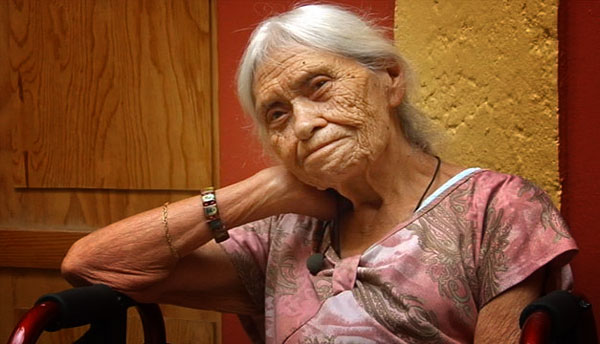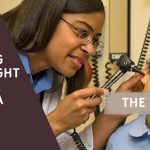The ward was bleak. Always eerily quiet.
A clinical world where clock ticks seemed to scream and that vile smell attacked more than the air, the walls, and the floors.
It attached itself to the people themselves as if they, too, had been harshly scrubbed down with disinfectant.
The worst part was the uncertainty.
You never really knew who would survive the night. Forming relationships felt as futile as trying to build a house in hurricane season.
The foundations could be swept away at any time.
The morning would come and the bed would be empty. Then, in a blink of an eye, a new soul on the verge of departure would fill the space.
There was one woman in particular. Her gaze alone stripped me down to my very core. She oozed fear, regret, and sadness.
Our time together was deeply confronting and undeniably life altering.
The woman that changed me could barely speak English. Her condition was incurable. She seemed to have some idea of who I was but it really didn’t matter.
As the young, “gung ho” PA student on clinical rotations part of my job was to assist on the Palliative Care ward.
Naively, I thought I was ready to go in and help solve the problems of the dying. Only it wasn't I who would be offering the greatest life lessons, instead, I would be receiving them.
After all, how much counseling can you give to a woman you can barely speak to?
As it turned out, it wouldn't be an issue. The majority of our time together was spent in silence, holding hands, with her squeezing mine at increasingly irregular intervals.
Hand in hand, mostly in silence, we contemplated life.
I wondered why her family never seemed to be around, how she had come to this ward, and why she hadn't taken the time to learn English, having been in the country for many years.
Occasionally, she would speak in her broken tongue, and almost every word was tainted with regret.
She would frequently apologize about her English, speak about doing work she used to hate, family relationships that had soured, and I would listen.
It really was too late to do anything about it.
I thought about the other people I worked with on the ward. It was strange. Those in the most physical pain almost always were in the greatest emotional pain and had the biggest regrets. Their language was littered with “should have”, “could have”, “wished I’d,” “why didn’t I” ...
Then there were the few patients I came across who were at peace.
Despite their circumstances, they would smile often, joke, and ask about me with great curiosity. Even though their bodies were on the verge of final retirement, their eyes were bright and alive.
Often surrounded by friends and family, these people would tell fascinating stories about the risks they had taken, failures learned from and the great rewards received.
Just like me, they didn’t know what would happen tomorrow, but they seemed ready.
Her name was Maria
After what would be my final session with her, I knew I wouldn't be seeing her again.
I had done my best to assist her, and I could tell she appreciated it, and yet we both knew she had not found peace.
Following the last time we spoke, I sensed she would be leaving soon, and I became very angry. I stormed out of the hospital, and with a red-hot face and clenched fists I started walking. My head was swirling with confusion.
I had no idea why I was so angry. I soon realized what it was. I hated the feeling of helplessness.
I was angry at the truth. All those life clichés had punched me straight in the face. You only live once, follow your dreams, blah, blah, blah; it was all excruciatingly true.
After that day, I thought more and more about the importance of happiness and the meaning of time.
Maria had shaken me out of my naivety.
I had become afraid! But I was not afraid of death. Rather, I was afraid of not living. Not living fully, openly, and wholeheartedly.
Then I heard her last words to me:
“The number one regret people have in their life is not taking enough leaps of faith!”
The reality inside that statement floored me. I struggled to breathe as the realization sunk into my body. It wasn't just statistically true; a vocal arrow had struck a personal bull’s- eye.
My mind pulled me back to the hospital.
I took a deep breath, lifted my head to the sky... and jumped.
















OMG ! I was not expecting the post to end as it did. WOW! Her regret is one that I hear often, as I work in a nursing home full time. Those that are at peace have taken many risks – and then there are others, who mutter under their breath constantly, or have angry outbursts at any one with a mood more upbeat than theirs. Im printing this post and putting it on my bathroom mirror!
Blessings! I am sure you are more than well after this video 🙂
Lina
🙂 Yes Lina, I survived… barely! I wrote this post right before my kids talked me into jumping from that ridiculous bridge, for some reason as I went to hit publish the video seemed timely. Nothing reminds me more of the finality of our time here on earth than working in medicine. We lost a 19 year old to brain cancer a few months ago in our clinic. She and her family accepted her passing so stoically. It was humbling. I hope all is well on your end, and if you have the time make sure you jump from a bridge, it is totally worth it! 🙂
– Stephen